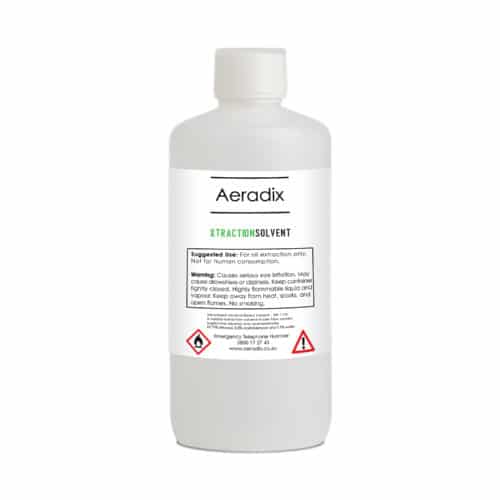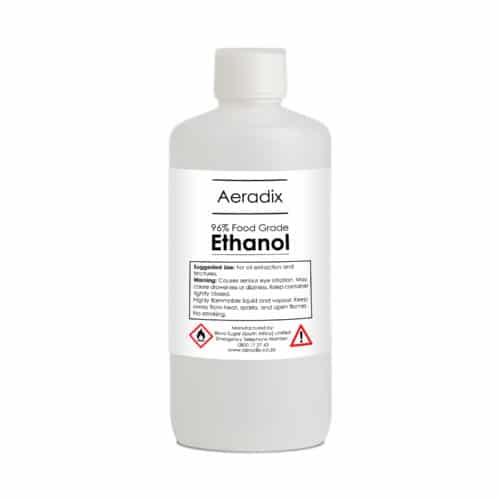Alcohol is a general term which refers to many organic compounds used in industry and science as reagents, solvents, and fuels. This article discusses different types of Monohydric alcohols and when to use which for cannabis concentrates and extraction.
Definition and types of alcohol
Alcohols are carbohydrates which are made of an alkyl group with one or more hydroxyl (-OH) groups bound to its carbon atoms. Alcohol is colorless, and also transparent. There are many types of alcohols and simple alcohols are found widely in nature. Ethanol is most prominent because it is the product of fermentation, a major energy-producing pathway. The other simple alcohols are formed in only trace amounts. More complex alcohols are pervasive, as manifested in sugars, some amino acids, and fatty acids.
The main types of alcohols are:
- Monohydric alcohols.
- Polyhydric alcohols.
- Unsaturated aliphatic alcohols.
- Alicyclic alcohols
The type of alcohol most widely used as solvents in the cannabis industry is Monohydric or simple mono-alcohols. The table below provides the IUPAC and Common Names for this type.
| IUPAC Name | Common Name |
| Methanol | Wood Alcohol |
| Ethanol | Alcohol |
| Propan-2-ol | Isopropyl or rubbing alcohol |
| Butan-1-ol | Butanol or Butyl alcohol |
| Pentan-1-ol | Pentanol or Amyl alcohol |
| Hexadecan-1-ol | Cetyl alcohol |
Methanol is mainly used for the production of formaldehyde and as a fuel additive. Alternately, ethanol is mainly used for alcoholic beverages, as a fuel additive or solvent. Isopropyl and Butanol is primarily used as a solvent and as a precursor to other solvents.
Denatured and Undenatured Ethanol
Denatured ethanol (either 95% or absolute) contains additives (such as methanol and isopropanol) that renders it unsafe to drink. Denaturing refers to removing a property from the alcohol (being able to drink it). Some of the chemicals used to denature ethanol are more dangerous than others. Therefore, it is recommended to use solvents where all the ingredients are clearly stated.

Aeradix sells a herbal extraction solvent made from natural sugarcane alcohol and acetaldehyde. Acetaldehyde is produced by plants and naturally occurs in coffee, bread, and ripe fruit. Successful extraction with a double boiler or still leaves little to no acetaldehyde. Therefore, acetaldehyde is the perfect compound for denaturing ethanol. The solvent is 99.79% ethanol, 0.2% acetaldehyde and 0.1% water.
Undenatured ethanol with no other additives or denaturants is commonly referred to as Food Grade Ethanol or Pure Ethanol. The ideal Food Grade Ethanol is 190+ proof, 96% food grade ethanol. The other 4% in 96% Food Grade Ethanol. The most cost effective method to remove the 4% of water is by using cyclohexane, providing 99.9% ethanol or absolute ethanol. However, cyclohexane is not a naturally occurring product and should not be consumed. Soaps, lotions and other topical products primarily use 99.9% ethanol.

Food grade ethanol can be used to make liqueurs like Limoncello or herbal or cannabis tinctures as well as RSO/FECO or cannabis oil. However, denatured ethanol should not be consumed and should only be used as a solvent for making RSO/FECO or cannabis oil.
Food Grade Ethanol and Taxes
Undenatured or Food Grade Ethanol is taxed heavily around the world to prevent abuse. There are entities selling extremely low priced Food Grade Ethanol in South Africa. However, undenatured ethanol is a product regulated by SARS and is subject to duties when purchased by non-rebate users. Our products are manufactured from sugarcane by Illovo and the COA and SABS certificates are available on request.
Determining if a product is indeed undenatured can be done by considering that the duties per litre are at least R200. Therefore, products sold as undenatured at less than or close to R200 per litre, it is definitely denatured and not safe for consumption.
